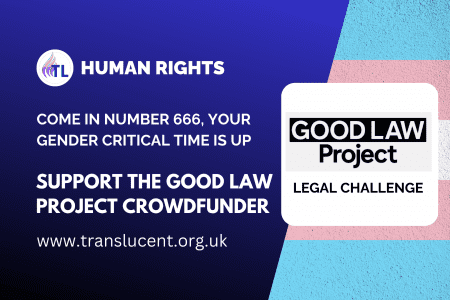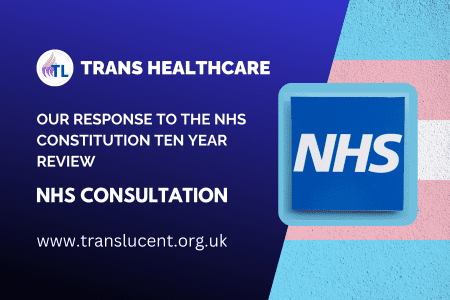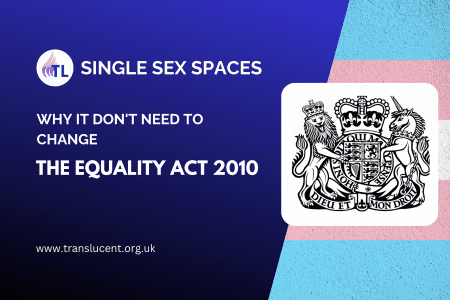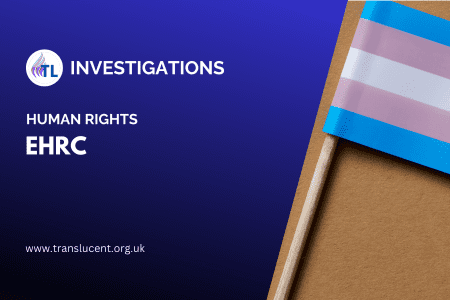I have been asked to provide a comment on the current ongoing case of the GMC v Dr H Webberley. The Tribunal hearing is being held at the Medical Practitioners Tribunal Service (MPTS).
Firstly, this blog is an opinion on matters as they proceed, and I have no part in the case. I am merely viewing aspects from the outside, like many others. I am preparing this in a non-professional capacity, but I do have some experience at giving expert evidence at tribunal over many years.
I am getting updates from ‘live Tweets’ from the hearing provided from the Tribunal service and will see if I can get a press update as well. I am also thankful to @truesolicitor and others for their updates on this case. We are aware of other live feeds but are also aware that these are not as accurate and the reporting is, let’s say, skewed. ‘live tweets’ are taken from them being in the room and hearing and seeing proceedings. Apart from being there, it’s the best we can get.
I am trying to remain faithful to the feeds and comments made, but to report the facts and give a background to the proceedings and how the trial system works.
In this case, and current tribunal hearing, Dr Webberley (Dr W) is accused of practising medicine outside the rules and regulations of the General Medical Council (GMC) during the period March -November 2016, A failure to hold a proper safeguarding policy, and (2018) a failure to be registered as a practice in Wales. But there is more to it than that.
Day 36 are brought to you by Holed below the waterline?
(Monday) [week 10] of the public hearing.
Anticipated start at 09:30am.
Start delayed due to the Manchester rain. Well, there’s a turn-up, not sure that ever happened before!
More of the same?
After last week’s intensity, this week should be a little more relaxed. Still work to do and witnesses to here from.
This is likely to be the last of the defence witnesses this week. The case should then move to summing up and the consideration for judgement.
What’s on today?
Today, we have Dr Pasterski (Dr P), who will give her expert evidence in the morning, then the return of Dr S, who will complete his evidence and cross-examination this afternoon. The Blue team have more witnesses later this week.
Dr Pasterski.
In the usual way, IS (blue team QC) introduces his witness for the defence. He runs through DR P’s CV and experience for the panel and outlines some key aspects.
Dr P is a Dr HW witness. She is a ‘proper’ witness who actually works with trans children and adolescents.
More importantly, though, Dr P has had direct involvement with patient C in one way or another. That is important. Its key in many respects that SHE ISN’T standing for the GMC.
DR P is a highly qualified practitioner with many years of relevant experience. She lectures at Cambridge and treats patients in Harley Street. She supervised PhD’s and has taught at “the Laurels” GIC and has worked with Dr D (a GMC witness)
DR P is producing as evidence letters to the GMC regarding Pt C
SJ to cross-examine
SJ knows he is going to have his work cut out. SJ has to try and find loopholes in their evidence that can be used to support the GMC case. So often it has been the other way around.
Dr’s S and P are VERY experienced trans care practitioners and know their stuff. These are no copy and pasters!!
SJ will try and use the standard QC tactic of easy questions that are supposed to ‘set up’ the witness for later down falls. I am not going to go into all the details but will cover some of the aspects that Dr P responded to.
We established the following.
1. Dr P agrees that academic study is important and continuous.
2. She agrees learning and gaining experience from others is also important
3. Dr P accepts that there are a “number of different roles” that one can play in the context of helping transgender people.
4. That there are three important elements to trans healthcare Assessment, medical treatment, and provision of ongoing support. Dr P then adds the support should be there if they chose to access that. (SJ could be questioning a supportive witness rather than cross examining at this stage)
5. SJ then tries a ‘killer question’ which is there is a distinct difference between treating prescribing for adolescents and adults. Dr P responds forcefully, saying “No. Once puberty has started, its much the same and is based on demonstration of gender identity.” (That’s not quite where SJ thought he was going)
6. Despite SJ trying to suggest otherwise, Dr States ”That NO (trans) treatment is given to pre-pubescent children, and ‘Best clinical guidance’ commences at Tanner Stage 2. (Stage not Age and this is a uniform starting point. There is agreement from all on that. The disagreement is if that should be less than 16)
7. That “it’s important” to have relevant experience before prescribing. Dr P adds that everyone has to start somewhere in their training and gaining experience.
8. SJ tries to suggest that assistance and peer review are needed before prescription practice. Dr P has none of it. If someone is suitably qualified, they should prescribe. Contacting colleagues is good practice. If the case is straight-forward, then prescribe. If not, seek advice and assistance. That’s normal good practice. (SJ is trying to get Dr P to undermine Dr HW, but Dr P is wise to this and states what he thinks is acceptable and normal practice. Dr HW is a qualified and experienced GP, she is well read and researched and feels 2competent to prescribe.” That meets Dr P criteria easily.)
9. SJ tries his hands at MDTs. He tries to get Dr P to accept that these are important, and a must be. Dr P is again having none of it. “not all team members need to contribute to each case all the time. DR P suggests referral to the guidelines and it’s a “case by case” basis. Our old friend flexibility has appeared. Except the GMC don’t like him much.
10. SJ tries to assert the GMC case of age not stage for puberty and HC treatment. Dr P is defiant. “No”. he says, If it a “lifelong development”, and the aim is “harm reduction” rather than delays that cause distress. (This has been said many times before by most, but not all. Some witnesses failed to compassion test.)
11. SJ then tries to suggest that there may be ‘other treatments’. Surely not conversion therapy? Yes, it seems that was his goal. Bad man. Dr P bats that away by not recognising any other form in that regard. (Is SJ – on behalf of the GMC- really suggesting CT is acceptable?)
12. SJ relates this line of questions to timing of prescribing. Dr P says it’s all “clearly laid out”. Knowing and timing are important as are the support from friends and family. Prescription can start from Tanner stage2.
13. Dr P then outlined an example where age and capacity can be a problem, She says this has never been an issue with trans (GD) patients.
14. SJ moves on to a line of questions regarding capacity and age (this is central to the GMC case, although most witnesses have debunked this) DR P says capacity is important, but “harm reduction” is important too.
15. SJ tries also to suggest that there is capacity (understanding for treatment) on “different levels”. Dr P is bemused. SJ then raises the Bell v Tavi issue. (remember this was AFTER this case and has since been overturned) . Dr P says he’s familiar with the case, but capacity is the same “in all domains [of medicine] and is the same here. (Why SJ and the GMC STILL feel this is a winning formula is beyond me.) Noe the less SJ continued, but DR P became exasperated at the suggestion and line of questions.
16. SJ moved on the DR P’s input in Dr HWs Pt C. Dr P outlined the process of her involvement and the experience needed. She suggested that her level of expertise isn’t required for what was involved in making the decision needed. Training is important, however.
17. SJ moved on to the matter of gaining information from other people wider that the patient. Family, friends, teachers etc.. Dr P states that wider consultation is important, but the extent is case by case. If a patient has MH difficulties, that could affect the process.
18. For Pt C, Dr P outlines the process she went through, what “obstacles” might exist and what help can be gained. The discussions are about “options” early on. And that the assessment includes the gender identification of the patient. Gathering information from the patient. (that’s what Dr HW said.)
19. That “information gathering” is a wider scope. But importantly its “organic”, a case-by-case basis.
20. When SJ suggest looking “outside” declared individuals, Dr P pulls him back and says that’s a “breach of privacy”. This is clarified by SJ to mean that further information may be needed from a wider group. Dr P agrees to a point. However, she would NOT seek information from someone who is hostile to the patient’s transition. As they aren’t an expert, the opinion isn’t relevant.
21. The patients view is important, especially if they are not ‘out’ at the time. Case by case sensitivity, considering the needs of the patient. What a Dr should be surely.
22. SJ at times goes beyond the type of questions he should ask. He got called out by IS then a (mild) reprimand by the Chair.
23. SJ, continuing with the GMCs rigid view on such matters is pushed back by Dr P on the fact that a patient to be put on Hormones at 16 would suggest they have already been on PBs for “TOO LONG” That is from guidelines , not a personal opinion of Dr P. (We have heard that before.)
24. SJ moves on to the Tavi. Dr P advises she thinks there is very “little” support and that the standard of care for patients A & C wasn’t to her liking. (that’s a bit of a kick in the case for PGB and the Tavi – Again, not an unfamiliar view it seems. PGB, the indirect instigator of this case, has been shown to be wrong on many fronts by several witnesses, including those on the GMC side.)
What did we learn?
We learnt that SJ is struggling for grip on this case. Dr’s are queuing to support Dr HW.
We also learned that the toll of last week has hit SJ hard. He called Dr P, “Dr Webberley” at one stage. On other occasions, he became obsessed with trying to get Dr P to state what he thought Dr W would have done in a given situation. That’s not the best course of action for a QC. It moves into the realms of conjecture and suggestion.
Remember the golden rule of asking questions that he already knows the answer to? That seems to have got lost recently. Why? Because there isn’t much left to pin on the experts that hasn’t already been undermined by IS.
If this case was Dr HW AGAINST the GMC (and others), the responses given to both QCs would make more sense. As it is, we have an old fuddy duddy organisation trying to save face, aided, and abetted by stick in the mud medics and others desperate to avoid a young upstart from doing and actual proper job and treating trans people nicely and with compassion.
IS returns
IS returns to ask a few ‘mop up’ and clarification questions of Dr P.
On MDTs Dr P suggests the term MDT is “misunderstood” and should really be “Interdisciplinary team” as each member brings their own specialist input.
On the question of consent (which is crucial in this case), Dr P says patients A & C “gave consent because they had capacity to consent.” The patients were able to record (on document) that consent, review and sign it. That is capacity and consent.
IS then asks Dr P direct questions:
“In relation to [patients] B & C Was Dr HW inadequate in terms of assessing?” Dr P replies “No.”
“And secondly in terms of prescribing?” Dr P replies “No.”
“Lastly, in relation to Pt C…. dyslexia and auditory processes…is this some sort of disorder?”
Dr P replies “these difficulties have some implications but those diagnosis don’t negate a Pts ability to consent.”
Panel Questions.
The chair and the panel now ask Dr P some questions, as has happened to others. As per usual, the type may perhaps give an indication as to the direction of their thinking. Rather than go into the detail, I will summarise the content and responses.
On the question of capacity and ability to consent, if there were ADHD issues, could that affect capacity? Dr P was confident that those circumstances are assessed. Each on their own merits. She uses her judgment from spoken and written information and has to consider the ‘impulsivity’ of a patient. She said she didn’t have any reports by family members that trans related decisions were ‘impulsive’
Chair asks is it fair to say Dr P that her analysis of Pts A & C were “relatively straightforward in terms of GD or is that too simplistic?” Dr P “accepts that statement”
Does it need someone of her GD experience to reach similar conclusions in “straight forward “cases? Dr P says it would take someone with appropriate training in GD as WPATHWPATH World Professional Association for Transgender Health https://www.wpath.org says it can be from different backgrounds, and the dysphoria is “straight forward and self-diagnosing.”
She adds “we need someone with experience to give guidance, which is what Dr HW has extensive experience with, as well as myself.”
There is discussion on prescription guidance and ability to prescribe. Dr P finds NHS guidance from 2014 with a review is 2024. She says it’s good to keep up with guidance. She also finds guidance from Charring Cross GIC (now the Tavi), and they have been issuing guidance since the late 1980’s.
She confirms that that guidance was ‘current’ at the time of this case (2016) and that this is available to Paed Endos and “somebody with experience in prescribing hormones.
Again, on consent, DR P states she reviews each patient (in this case Pt C) and makes an assessment as to capacity before recommendation for further treatment.
She confirms to the panel that while she assesses capacity, it’s still up to the prescriber to do so (if different) and as such(as the chair suggests) it’s a 2-stage process. After some confusion from the panel about blockers rather than hormones, Dr P says she leaves the decisions to the prescriber but would explore a general pathway.
SJ is back (again)
SJ then wishes to ask further ‘clarification’ questions from his point of view in this matter. Partially as elements of his likely success in this case seem to be melting in front of his eyes.
He says Dr P mentioned some guidance. Dr P says she will give the titles of them to SJ. she feels they are in her statement and references but needs to check where? Maybe overlooked them.
Dr P suggests Google to SJ for shared care prescribing.
Where are we now.
After Dr Ps evidence, the panel questions seemed fairly innocuous and more ones of clarification. Dr P was able to respond promptly and easily.
IS returned and asked a couple of questions surrounding capacity to consent. He asked how common or rare is it to have someone with no cognitive capacity so severe, they couldn’t consent? Dr P says he has never come across this in GD patients.
That gives a bottom line to capacity questions and says ALL her cases have had capacity to an acceptable level with each assessed and reviewed properly. In the end, that is a massive tick in that box for Dr HW.
IS then somewhat gleefully states they are “early” ( He thought that would never happen.)
There is discussion about the evidence given in private by Pt A and his mother. That was for their anonymity. However, IS says, there is no reason, subject to agreement of the GMC (via SJ) that the documents and what was said can’t be made public. This is a potentially complex issue. It was agreed this matter would be discussed on Tuesday and a decision reached if possible.
Dr Schumer returns
Dr S is back for his cross examination by SJ. This after his examination and giving of evidence by IS on Friday.
IS continues his examination as they stopped at 5pm on Friday.
He merely asks Dr S to confirm the position of when to start medical intervention.
That to have a “hard and fast cut off rule” is “harmful in making those decisions.” (Stage not age)
OK. Platform is ready for SJ. What will he find?
1. That Dr S considers Dr Norman Spack (of Harvard) a mentor and still so even though he is retired.
2. Dr S would still ring Dr NS for help and advice if he felt he needed it. And that he was always helpful. (Not quite sure how that helps SJ, but there you are.)
3. Dr S uses the guidance available to him and assesses which is suitable in each case, and “experience and judgement assist in this”
4. That Dr S discusses matters with his Drs in his team at the clinic to consider philosophies and standards.
5. Dr S feels he is a leader in managing GD.
6. People, families, and students come to Dr S for advice and guidance of various form of Endo care.
7. That GD prevalence has increased rapidly in the last 10 years.
8. That treatment for paeds patients is carried out in clinics similar to his across the USA.
9. That pre-pubescent trans patients would refer or be referred to Dr S, though not exclusively.
10. He states that “safe prescribing” is “quite easy” and has been done by GPS, Gynae’s Urologists. SJ is trying to suggest these aren’t primary roles, but Dr S states otherwise.
11. He then goers onto explain, that is quite easy to get the training and education needed to prescribe and they can get in touch with colleagues etc “the way Dr HW did.”
12. SJ tries to get Dr S to accept “it’s easy” because he is experienced. Dr S is not having that. Many find it hard because they don’t have the experience and see a number of patients. He says, and refers to documents, that it isn’t “overly challenging” in gaining experience and suitably qualified people can prescribe without being fellows of Paed Endo Society.
13. In learning to prescribe for any form of medicine, and trans medicine is no different, that a person takes and gets the medical training and learning needed. (Dr HW has done this in spades) He also says that the lack of those with the skills that can teach this is outpaced by those wanting to learn those skills.
14. SJ, struggling with this, continues his questions. Dr S says one of the ways to get training and experience is to work with ‘teachers’ and experts. (Dr HW has done this)
15. SJ tries to get Dr S to accept that merely reading guidance isn’t enough. (SJ thinks Dr HW has only done this- he should know different.) However, Dr S pre-empts the ‘killer question’ and says, “I found Dr HW’s learning to be acceptable.”
16. SJ tries to get Dr S to accept thar Dr HWs training wasn’t suitable or enough. (He really should have been listening weeks ago). Dr S doesn’t agree at all.
17. SJ wants Dr S to accept that passion and rigor for part of the skills needed in this ‘cohort’ of patient care. Dr S agrees. (Not sure where SJ is going here – maybe he doesn’t either.)
18. SJ then moves on to patient assessment and how that works. Dr S is happy to explain and gives several examples. (Not sure where SJ is going here – maybe he doesn’t either.)
19. SJ then seems to have misinterpreted WPATH guidance. SJ suggests that a master’s degree is needed to be able to diagnose MH and treatment. Dr S dismisses this as he’s not aware of that.
SJs continued questions surrounding social workers, qualifications and diagnostic skills just seem to peter out. He is saved (for now) by Dr S requesting a break. Probably deflated and wondering how to pull this one back. He’s not scored many points here and has been told he’s wrong. That’s never good for a QC. (I know, and that’s quite fun)
20. SJ is back on capacity and MDTs. Dr S is confident on this and outlines what it is and how differences can be considered. Dr S also outlined how that it is an individual approach and that referrals are needed occasionally. How that in assessing capacity and consent, parents are the most important people as they know their child. (SJ is trying and failing to get Dr S to accept that Dr HWs training and skills are not up to standard – it’s his job after all- but we already know she is better than most GMC experts.)
21. SJ then decides to ‘go fishing’ he strays off the straight and narrow for a QC and ends up being pulled back by both IS and the Chair…again!!. This is not a good look for a QC.
22. SJ moves on to the point of communication and what happens if it breaks down. (He feels this may be low hanging fruit for him) Dr S says that if a patient came to him because of poor care received elsewhere, then it would be “counter-productive to continue communication with that provider.” (remember Dr HW is being charged with a lack of communication with the Tavi when patients were denied care by them for going to/thinking of going to her. In any other form of medicine “getting a second opinion” is acceptable. Not if you are PGB though)
23. SJ does get Dr S to agree that there are different consents for PBs and hormones, even though Dr S doesn’t use them. He uses assessment.
24. SJ tries his luck with the why on earth did she use remote working in 2016 question? Surely seeing patient face to face EVERY time is better. (this is a partially on-line service after all) Sadly, as he should well know, it has been totally undone by a certain Covid virus. Arguably Dr HW was ahead of her time rather than not offering good practice.
25. SJ tries then to set answers about Pt C against responses from Dr S. That didn’t go well either.
26. SJ tries to ger Dr S to agree that PBs affect fertility. Dr S won’t agree.
So, what have we learnt?
We have learnt that SJ is really struggling to pin anything on Dr S in as much as he couldn’t pin anything on Dr P. It’s an uphill struggle for him.
IS and the final ‘one word’ question.
IS returns for his clarification question, suggesting it will be a one-word answer.
The question (relating to part of Dr S’s conclusion) “in relation to your opinion here, has your opinion changed?”
Dr S “It has not”. After laughing, that’s almost the NO IS wanted.
Panel Questions
As we near the end of the day, the panel ask their questions.
Dr S advises that Drs have been treating GD for over 5 years.
Before that it may well have been Drs (for paeds and adolescents) with adults accessing it via primary care.
Dr S isn’t aware of any studies regarding differences between Primary care and specialist care models.
The panel questions Dr S about parts of his book. This surrounds matters of accessing care and the complexity of assessment along with the capacity to consent.
The panel then ask Dr S about his word “courage”. He responds by saying it relates to patients and the “politicisation of gender care, especially in a Paeds context. (Dr S is from the US but it’s the same in the UK…..mainly because that’s why we are here!!!! The three cases selected and complained about by PGB to highlight how bad he thought Dr HW is, are paeds and adolescent care patients.) Dr S continues to say they are wrong and that care at that age is “lifesaving”, despite many states trying to make what she does illegal.
Another aspect of courage, he says, is that he is making decisions that affect patients for their whole life. They are made with them but it’s a big decision.
The panel then suggest SJ asked him about prescriptions to 12-year-olds as being “the frontiers of prescribing”
Dr S relates this to having a 12yo patient in front of him and making the right decision about that patient. He goes on to say, “If I had a 12yo who was struggling (Pt A – who was kicked out of the Tavi), I would understand the decision to go to Dr W and that’s the decision I would take in that situation.”
He adds, “I think it matters less about where the care is done, but who it is provided by, from knowing about Dr W and how she’s learned, she did the right thing in prescribing T to Pt A and I’m glad she did because it seems more beneficial to Pt A & that’s how Id answer that.”
That, statement alone is a ca case sinking response. That fact it was given directly to a panel question and not to one or other QC, makes it even more poignant.
SJ pops back, probably reeling by now, and Dr S then confirms he had treated and prescribed for a similar aged patient. (actual facts, not copy and paste, might be, evidence.)
Dr S confirms to SJ it was done in the context of a clinic, which he asserts from the question asked, is as good as the infamous MDT.
SJ then questions Dr S on the ability of Dr HW to prescribe, both regarding age and remotely. Dr S replies that Dr HW “reached out to others about their practice and guidance…. That was the basis of her comfort in treating a 12 yo. “There are 2 choices and risk and benefits each way.”
For her to take SJs route of argument, say she wasn’t comfortable and send the patient away would have risked more harm and HM distress. Or, she could have prescribed “and saved their life”. He continues “The risk min prescribing is saving a life, but they may regret that later.”
SJ tries to get Dr S to agree Dr HW could/should have taken further advice in the “short time” available at the time of referral and prescription. Dr S counters and says, it’s about the time she had ALREADY spent asking and finding out. The balance of risks and benefits had been considered before the meeting based on what she already knew and had found out. (Dr S is say pre-empt rather than react. – if only the GMC had done that, we wouldn’t be here probably.)
That ends the evidence from Dr S.
Where are we here?
We have heard from two experienced and well qualified practitioners in the trans GD healthcare field.
Both passionate about the subject, well learned and have treated a large number of patients between them.
Both accepted in different areas, that the treatment and practice adopted by Dr HW was acceptable and appropriate, her training and level of qualification are acceptable and that she has sought answers from others where needed. Also, that not all cases are complicated, even those held out by the GMC to be complex.
Is this case holed below the waterline already?
Now what?
Well after the discussions earlier, and re scheduling of witnesses (again), we are back on Wednesday and a private day on Tuesday.
We are back for the evidence of Dr Baumer. He will need to be examined and cross examined by the end of tomorrow as he has other commitments and can’t return before the end of the hearing.
After a bit of QC battling, SJ will have to get his cross examination done on time!
There was discussion and near agreement regarding the publication of selected evidence from Pt A and his mother.
So, with that, a day off tomorrow and back on Wednesday sharp at 9am. That subject to fuel deliveries, trams, and the Manchester rain.
To be continued…../
Nicola











 To provide the best experiences, we use technologies like cookies to store and/or access device information. Consenting to these technologies will allow us to process data such as browsing behaviour or unique IDs on this site. Not consenting or withdrawing consent, may adversely affect certain features and functions.
To provide the best experiences, we use technologies like cookies to store and/or access device information. Consenting to these technologies will allow us to process data such as browsing behaviour or unique IDs on this site. Not consenting or withdrawing consent, may adversely affect certain features and functions.